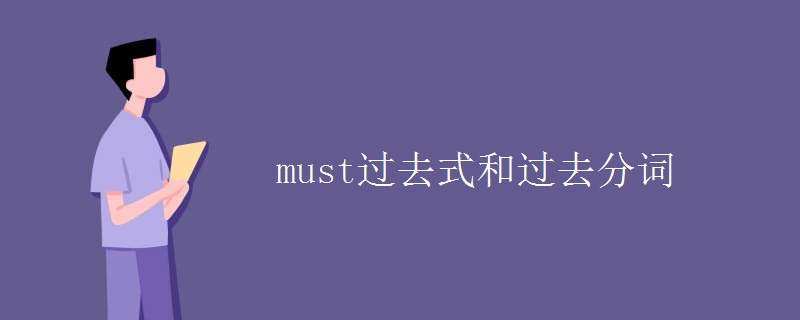-
-
must的过去分词和过去式都是must,must是情态动词,情态动词没有人称变化和时态变化。must表示义务或强制,含意是“必须”“应当”,例句:You must have noticed how tired he sometimes look.(你一定注意到了他有时候看上去很疲惫)。

must的用法
1.must表示义务或强制,含意是“必须”“应当”; 其否定结构表示“不许可”或“不应该”; 用于一般疑问句时,表示征求对方的意见,其肯定答语用Yes, please或I'm afraid so,否定答语用needn't或don't have to; must在间接引语中表过去。
2.must表示必然性,一般只用于肯定句中,有时表示“意愿”,带有感情色彩。
3.must表示推测,暗含很大的可能性,一般只用于肯定句中,在否定句中表示推测用can't而不能用mustn't。
4.“must+be”“must+be+ v -ing”“must+表示状态的动词”可表示现在或一般的情况; “must+have”表示过去的情况; “must+表示动作的动词”表示将来的情况。
must例句
1、We must make good use of the available space.
我们必须充分利用现有空间。
2、And again, we must think of the cost.
再说,我们必须考虑成本。
3、You've been a great help, I must say.
依我看,你真是帮了个大忙啊。